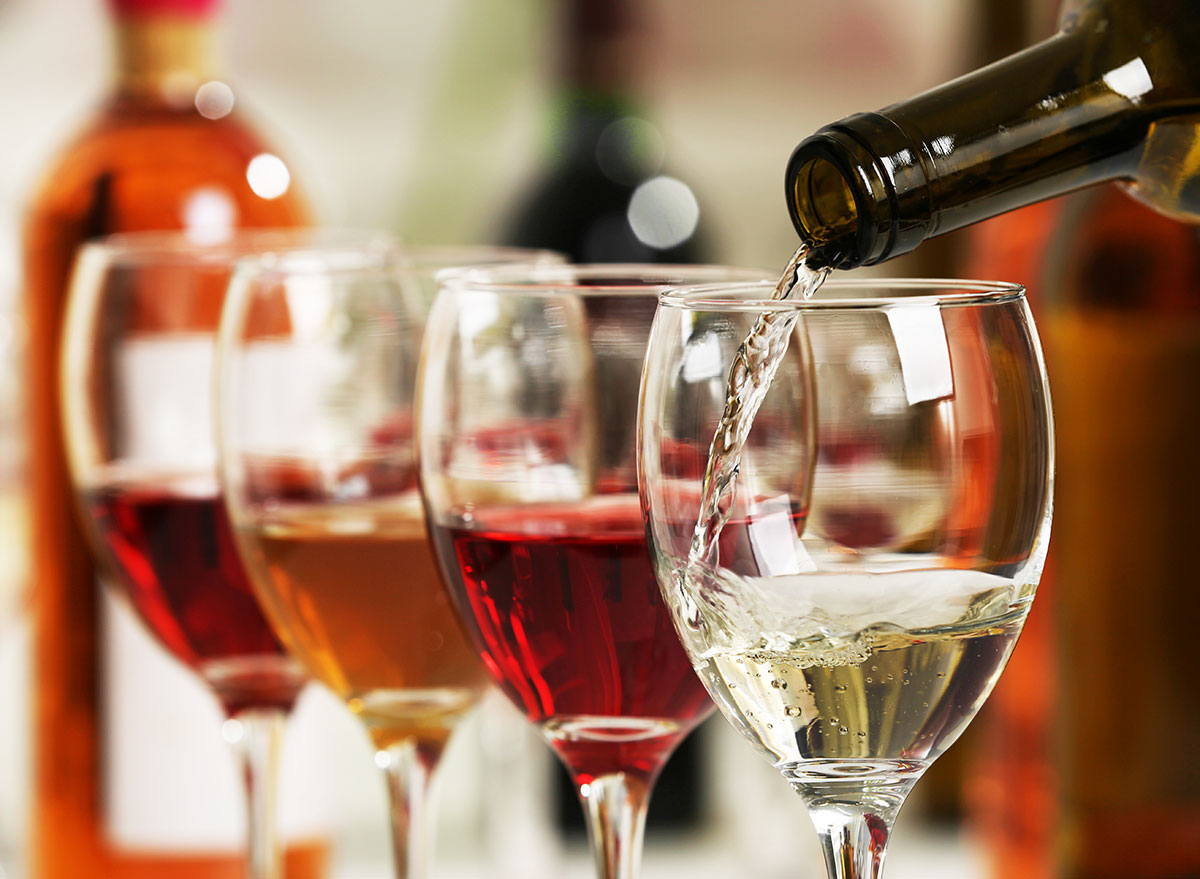This Is The Worst Reason to Drink Wine, According to Science

If you’re drinking wine for all of the health benefits it could have, you may want to put a cork in it, says science.
There are plenty of health-related reasons to drink the occasional glass of wine—it can potentially ward off cardiovascular disease, and potentially lengthen your life, among other things—but sometimes the benefits of this beverage can be overblown. Read on to find out why.
The results have been overstated.

In fact, though some studies have suggested that drinking red wine can reduce blood pressure (which in turn can lessen the chances of a heart attack, stroke, heart failure, and cardiovascular death) there is some indication that this is something that has been blown out of proportion.
That is to say, it’s generally understood that more research needs to be carried out before people can definitively tout wine’s ability to reduce blood pressure, so this shouldn’t be viewed as a compelling reason to drink wine.
The connection is very unclear.

Although some studies have found an association between wine and heart health benefits, “it’s unclear whether red wine is directly associated with this benefit or whether other factors are at play,” Dr. Robert Kloner, chief science officer and director of cardiovascular research at Huntington Medical Research Institutes and a professor of medicine at the University of Southern California told the American Heart Association.
Because most studies are observational, they only show correlation rather than causation, which means that wine drinkers may be protecting their heart through other means but that they just so happen to drink wine. For example, wine drinkers may be more likely to follow a Mediterranean diet, which is known to be cardioprotective.
Alcohol might not be an important factor.

One of the more convincing studies that helped establish the connection between red wine and lower blood pressure was conducted in 2012. It found that non-alcoholic red wine may lower blood pressure in men with a high risk of cardiovascular disease.
More specifically, a team of Spanish researchers recruited 67 men between ages 55 and 75, all with diabetes or cardiovascular risk factors. Each man drank red wine daily for four weeks, then drank non-alcoholic red wine daily for four weeks, then drank gin daily for four weeks. The daily amounts were moderate: 10 ounces of wine or three ounces of gin, which is about two drinks a day.
Wine did not show a significant reduction in blood pressue.

In the same study, the men drank non-alcoholic red wine, their systolic blood pressure (the top number in a blood pressure reading) decreased on average by six points. That’s enough to reduce heart disease risk by 14% and stroke risk by as much as 2%, according to the researchers. Additionally, there was no change in blood pressure when the men drank gin and only a small reduction in blood pressure when they drank regular red wine.
At the end of the day, wine is still alcohol, it’s unlikely that wine will cure your chronic hypertension.
You could end up drinking too much.

In fact, drinking more than the recommended amount of wine per day—one glass for women, two for men—can actually have the opposite effect and be a burden on your heart. This is because too much alcohol raises the risks of hypertension and cardiovascular diseases.
“Drinking too much alcohol can raise the levels of some fats in the blood known as triglycerides. A high triglyceride level combined with high LDL (bad) cholesterol or low HDL (good) cholesterol has been associated with fatty buildup in the artery walls. That, in turn, can increase the risk of heart attack and stroke,” says the American Heart Association.
So, go ahead, enjoy your glass of red wine—but just don’t do so in the hopes of improving your heart health. Or, if you’d rather cut back on it, you might want to read about these Side Effects of Giving Up Wine, According to Science.









